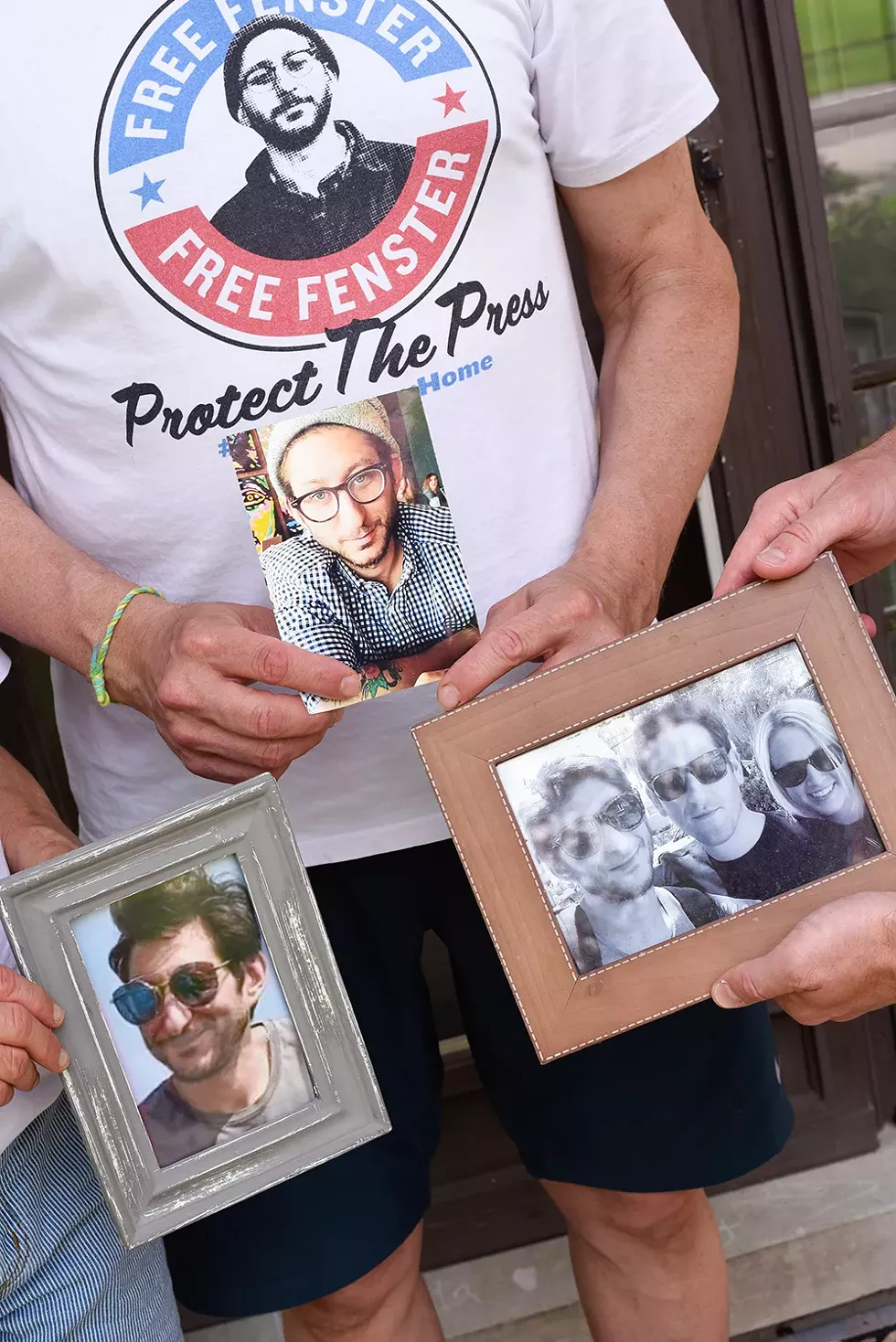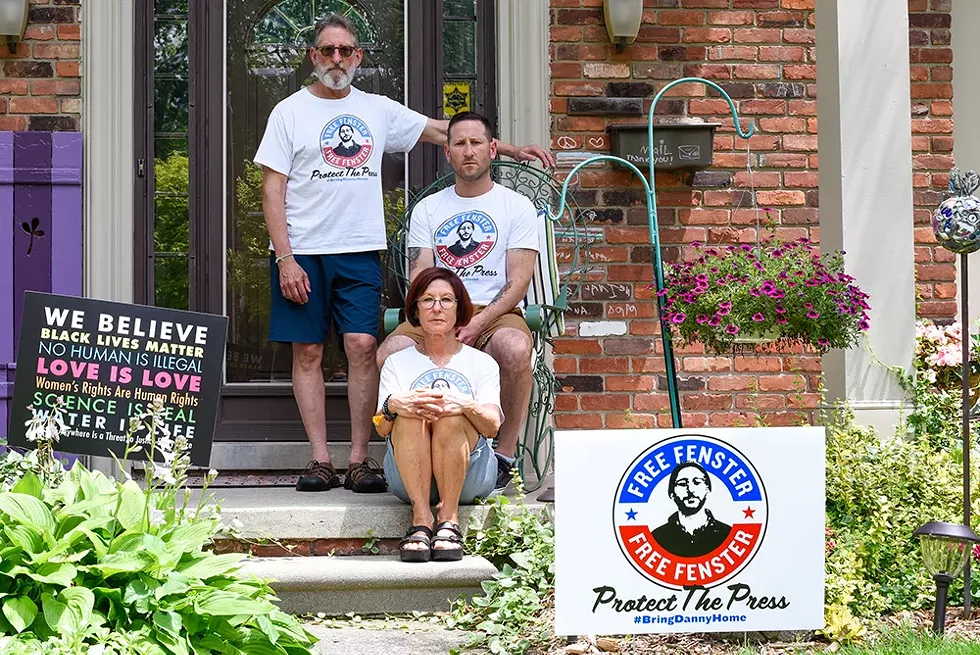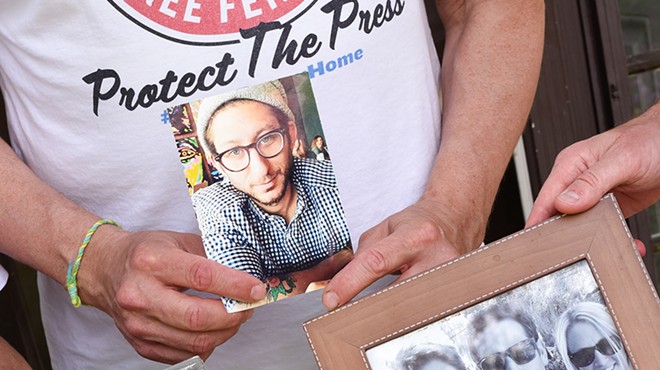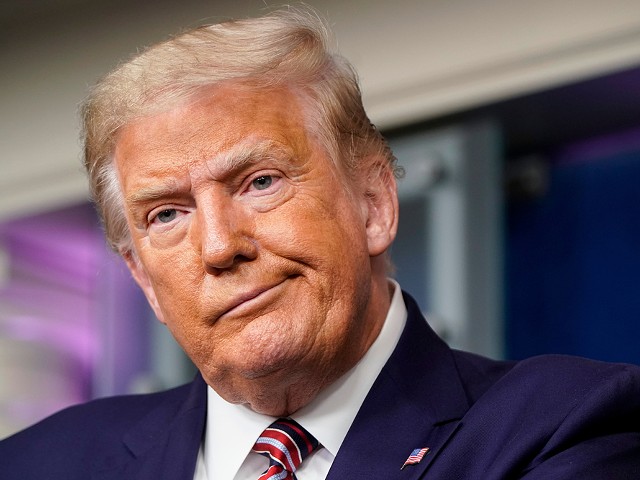
On a recent weekday at their Huntington Woods home, the Fenster family is trying to keep their spirits up.
"Take this potion," Rose Fenster says, holding a jar filled with a spinach smoothie.
"Whatever it takes to get him home," Buddy says.
Both are wearing T-shirts emblazoned with the likeness of their son, Danny, 37, a journalist who's been detained in Myanmar since May 24, when he was trying to board a plane at Yangon International Airport for a surprise visit home. Since then, the Fenster residence has become a hub of activity as the family works day in and day out to raise awareness of Danny's incarceration, hosting back-to-back sit-downs with reporters between appearances on national and international television outlets and calls with U.S. officials.
The case even caught the attention of the rock band U2, who tweeted support for Danny on June 29.
"Journalism is not a crime," the band wrote, adding, "#BringDannyHome."
Danny had been working as a journalist in Myanmar for several years when, on Feb. 1, the Asian country's democratically elected leaders — President Win Myint and State Counsellor Aung San Suu Kyi — were removed in a coup d'état led by its military, the Tatmadaw, the day before parliament was to swear in the officials elected during the country's November 2020 general election, which the Tatmadaw claimed, without evidence, was invalid due to alleged voter fraud. It then announced a crackdown on "fake news," declared a year-long state of emergency, and installed its own leader in place.
Sound familiar?
"It's like here, they said the day after the inauguration, these QAnon people believed the military would overthrow the government," Buddy says, referring to the supporters of former President Donald Trump who stormed the U.S. Capitol on Jan. 6.
"It's scary," Rose adds.
The situation in Myanmar is a glimpse into what could happen if an authoritarian insurrection is actually successful. The country has since been thrown into disarray: mass protests in the streets, a bloody crackdown in response, and a collapse of its health care system — amid a historic pandemic — with the junta seizing hospitals to use as bases, and doctors refusing to work. It's believed that more than 3,000 people have been detained by the junta, and more than 700 civilians have been killed, including children.
And there are now fewer journalists to tell the world about it all, as the regime has arrested dozens of reporters and banned some outlets. The junta says the arrests are for violations of section 505-A of the country's penal code, an amendment added two weeks after the coup that criminalizes anyone who "causes or intends to cause fear to a group of citizens or to the public," "causes or intends to spread false news, knowing or believing that it is untrue," or "causes or intends to commit or to agitate directly or indirectly criminal offence against a Government employee, any kind of Government employees or Government employees."
Violation of the section is punishable by up to three years in prison.
While Danny has had two brief court appearances so far, with a third scheduled for Thursday, the charges against him remain nebulous — even after months behind bars.
"He's a journalist — that's it," his older brother Bryan says. "I think anyone who is covering the coup is a target."
At the time of his arrest, Danny was working for the magazine Frontier Myanmar. The junta has since said that Danny was detained because of his work with Myanmar Now, a digital news site that the junta banned on March 8, according to documents filed to a special court in Insein Prison, where Danny's case is being heard, as reported by Frontier Myanmar. Myanmar Now has continued publishing, despite the ban.
But Danny resigned from Myanmar Now in July 2020, months before the coup, to begin work as an editor for Frontier Myanmar, editing the English-language section of the publication. Danny started at Frontier Myanmar in August 2020, the magazine says.
"Frontier believes Danny has done nothing wrong and we reiterate our call for his immediate and unconditional release," the magazine wrote in a statement. "The documents in Danny's case file just further underscore why he should be freed immediately."
“I love telling journalists this," Bryan says, pointing out that Danny moved to Myanmar for a journalism job on May 3, 2019 — World Press Freedom Day, the day dedicated by the United Nations to raise awareness of the freedom of the press, and to remind governments of their duty to respect and uphold the right to freedom of expression.
The Fensters say that Danny was long interested in journalism, and always had an interest in reading and writing. "This is someone who would read entire books in a few days," Bryan says.
"He drank them," Rose adds.
"He's extremely well-read, extremely curious, extremely intelligent," Bryan continues. "Books have affected him profoundly, and what the written word can do to people."
"He wanted to do long pieces," Buddy says. "You know, he didn't just want to just do newspaper articles. He wanted to really do research on stories."
After graduating from Chicago's Columbia College in 2009 with a degree in journalism and creative writing, Fenster joined AmeriCorps, where he worked with people experiencing homelessness in the San Jose area, conducting outreach with people living in the streets and the service agencies, and creating short documentaries about homelessness used for a public outreach campaign. "Because of the results of his work there, they were able to raise money through grants," Bryan says.
Following his stint in AmeriCorps, Danny eventually wound up at Wayne State University, where he worked as a teacher's assistant while earning a master's degree in creative writing.
After grad school, he headed off to New Iberia, Louisiana, to work as a reporter for The Daily Iberian. He became interested in New Iberia after reading a New York Times investigation into a Black man who died while in police custody there.
"He was very interested in that story," Bryan says. "That's what kind of drew him down there." Bryan, who works as a video producer, even collaborated on a story with Danny about the impact of poor policing on the people of New Iberia, with Danny writing and Bryan taking photos.
When news of Danny's incarceration made it to New Iberia, his friends and colleagues held a candlelight vigil for him there.
"I think he just, wherever he is — whether it be New Iberia, Louisiana, or Yangon, I mean he unintentionally is an advocate [for] these places," Bryan says.
"The underprivileged and the underserved, he loved to learn about and speak for them and help them," Rose says.
"And make people uncomfortable, in a good way," Bryan adds.
But after his stint at The Daily Iberian, Danny moved to Thailand, where he took a job outside of journalism doing copywriting work.
"I think it was out of curiosity, and to see how people live there, and to learn the culture," Rose says.
"He just wanted to go work in another country," Buddy says. "You know, I kind of think the election in 2016 kind of [propelled him] to just say, 'Let's see what it's like to live in another country.'"
“We really just want to continue talking about him, because we feel that once people feel they can connect with this person they don’t know, anywhere in the world, they’ll be more inclined to act on his behalf.”
tweet this
When Danny had the opportunity to return to journalism in the nearby country of Myanmar, he leapt, taking a job at Myanmar Now.
For a newshound like Danny, the timing was perfect, but when the coup happened, the Fensters were worried. They say that Danny seemed to appreciate the opportunity to help document history, however.
"It takes a lot to worry Danny, I think," Rose says. "And he's always under the radar, observing."
"He loves the work he does and being a journalist in a foreign country like that," Bryan says. "[The coup] was international news, so he was excited to be part of that."
Danny kept in touch with his family via social media and communication platforms like WhatsApp. At first, the junta was met with resistance in the form of mass protests, but after about a month the regime began responding with violence.
"When it first started, the streets were packed with protests, and it was civil," Bryan says. "And then after a month, that's when things really started getting bad. ... He would say things like, 'You may not hear me for a few days because they're shutting the internet down.'"
"And, 'Tell Mom I'll be fine,'" Rose says.
Eventually, journalists started leaving the country, while those who stayed were being held in safe houses, separated from their families to protect them.
"These people are just coming to the door, and taking them," Bryan says. "Or worse."
"Toward the last couple of weeks, Danny told me he wanted to come home, because I'm sure he was sensing this."
"The journalists were still writing, but they're changing their names because they don't want their byline on it," Buddy says. Some outlets, like Frontier Myanmar, resorted to dropping all bylines on its stories to protect the identity of its journalists.
While reporting this story, Metro Times reached out to Frontier Myanmar editor-in-chief Thomas Kean for an interview.
"Happy to take some email questions, but please understand we have to be careful about what we say so as not to jeopardise his chances of release," Kean replied in June.
After we sent some email questions about Danny's work and life under the junta, Kean did not reply. A story published on Frontier Myanmar last week reported that the junta has stepped up phone and internet surveillance to monitor its opponents in real time.
Frontier Myanmar did not respond to a follow-up email by press time. (After this story went to press, Kean provided a lengthy response offering an update on Danny and life in Myanmar.)

Last month, the junta released Nathan Maung, the Burmese-American editor-in-chief and co-founder of the digital outlet Kamayut Media, who was arrested during a raid in March. Maung says he and co-founder Hanthar Nyein were blindfolded and taken to prison, where they were interrogated and tortured, including being deprived of food and water, and beaten. After he told authorities he was a U.S. citizen, he was eventually released — after 98 days behind bars. The whereabouts of Nyein remain unknown.
"Journalists have their professional duty to provide the truth," Maung told the outlet Voice of America. "But at the same time, they are fighting against the tyranny. Because without democracy, there's no freedom of press. There's no news."
The Fensters say they have been in contact with Michigan officials, including Senator Gary Peters and U.S. Representatives Rashida Tlaib and Andy Levin, who tells Metro Times he has been "deeply involved" in the case since he found out Danny was detained.
"Literally the next day, I had written a letter to Secretary of State Antony Blinken and got it signed by both Michigan Senators, and all 14 of us Representatives in the Michigan delegation, and we sent it off on May 25 — totally bipartisan," he says. "And then we were all off to the races, and we haven't stopped since."
For Levin, the case of Danny hits particularly close to home: Huntington Woods, where the Fensters live, is in his district.
On the Fourth of July, Huntington Woods held its annual parade — the only one in Levin's Ninth District that wasn't canceled due to the pandemic. "That's a parade I always do," Levin says. "I grew up in Berkley, and Huntington Woods kids go to Berkley High. I got in a lot of trouble there when I was a teenager, so it's dear to me."
He adds, "It was certainly a unique parade, and unlike any other because here we are celebrating the birthday of our country, and the values that we cherish most as Americans, a lot of which has to do with freedom — freedom of speech, freedom of assembly, freedom of religion, certainly freedom of the press — and here was this kid from Huntington Woods, who went out in the world, and selflessly [tried] to pitch into the project that you work on every day, which is figuring out what the heck the truth is in any given situation, sourcing and carefully doing the hard work of reporting it, and then sharing it."
But Levin has other connections to the case, too.
"It's also weird or whatever — you know, some Jewish person might say 'bashert,' like fate, or some people might say, a surprising coincidence," he says. "In any event, here I am."
Levin serves on the U.S. House Foreign Affairs Committee, and is vice chair of its Asia, the Pacific, Central Asia, and Nonproliferation Subcommittee. He also authored House Resolution 134, which formally condemns the Myanmar coup. The resolution was introduced on Feb. 18 and passed the House on March 29.
Levin says he has been in "constant contact" with the Fensters, as well as the White House, the ambassadors of Myanmar and other Asian countries, U.S. Special Envoy for Hostage Affairs Roger Carstens, and others. (It was also Levin who brought the case to the attention of U2's Bono, he says.)
"Let's remember that Roger Carstens was put in place by President Trump," Levin says. "But he called me up, and he gave me a cell phone, and he said, 'I know we probably are politically different, but none of that has anything to do with this.' And I said, 'I totally agree with you.' I love the guy. I mean, we're working super closely together on this."
While Levin says he believes that Danny has not been tortured, he still sees reason for concern. Fenster has still not been granted in-person consular access to U.S. government officials, as required by international law — a violation of the Vienna Convention.
A longtime scholar of Asian affairs — he initially studied Asian religions in college before realizing he was spending more time learning about human rights abuses in Tibet and decided to switch his studies to law — Levin is able to shed light on the historical context of the situation in Myanmar, also known as Burma.
"Burma was ruled by the military for many years," he says. "They have this kind of 10-year experiment going on. It was really an experiment with partial democracy, in multiple respects, but let me emphasize two of them."
The first, Levin says, is that the Myanmar military never truly ceded power to its civilian government. "They were guaranteed, like, a quarter of the seats in parliament, even before you got to the election," he says. "So they already had immense power."
Second, various ethnic groups, including the Muslim Rohingya, were excluded from that democracy. It was believed as many as 1.5 million Rohingya people lived in Myanmar by 2017, when the government escalated a crackdown on them, causing them to begin to flee the country into neighboring Bangladesh. (The United Nations has called Myanmar's prosecution of the Rohingya ethnic cleansing.) Levin says some 1.5 million Myanmar residents were not allowed to vote at all in the country's November election.
"It was an imperfect experiment with democracy," Levin says. For that reason, he calls the coup an "auto-coup," since the military was already largely in power.
Levin also points out that Myanmar's turmoil might be surprising to some because the country is majority Buddhist. "People should not think of Buddhism as a saintly religion above others," he says. "Here's a Buddhist majority, you know, literally being involved in a genocide against the Muslim minority."
He adds, "Unfortunately, people are people everywhere. We're fragile and imperfect."
However, Levin sees reason for hope.
"The majority of people are realizing that in their movement for a restoration of democracy, that they really need to include all of the people of Burma, if they want to really overcome military rule," he says. "So there's been hopeful dialogue and collaboration between some of the minority peoples and the majority people."

The Fensters say they've received two phone calls from Danny since his incarceration, on June 30 and July 8. On both calls, Danny assured them he was OK.
Bryan says the first call came thanks to Danny's wife, Juliana, a Brazilian woman who he met in Myanmar. "So she goes to the embassy there, and then the prison calls the embassy, and the embassy calls me, and they basically hold two phones together so I can hear him and talk to him," Bryan says. It was the first time they spoke to Danny in 38 days.
While it wasn't a perfect set-up, Bryan says he was thankful to hear Danny's voice. "There were times [the sound] kind of broke up," he says. "But it was actually a little better than I was anticipating."
Bryan says they even got Danny to laugh. "He's got a really good sense of humor," he says. "So we were happy that's still intact, that it's helping him get by."
He adds, "As frustrating as it is, we're grateful to them that they're allowing these phone calls. We're hoping that it's something for him to look forward to, to keep his spirits up. At least it's something positive in his life, because nothing else is right now."
The day before the second call, authorities in Yangon announced a stay-at-home order as COVID-19 cases surged in the country. Danny is not vaccinated; he had planned to do so during his return to the U.S. (Levin says he and others have asked repeatedly if they can at least send someone to the prison to vaccinate him there, to no avail.)
It may be too late, however. On the second call, Bryan says Danny said he was experiencing possible COVID-19 symptoms, including a fever.
"They kind of just treated him for the flu," Bryan says. "I don't think they have tested him for COVID, and you know, especially with the rise of it there, he most likely has it."
In the meantime, the Fensters stay busy at their base in Huntington Woods. They launched a website, bringdannyhome.com, where people can buy "Free Fenster" shirts. Bryan says Danny will decide where all proceeds will go once he's released.
A family friend designed the shirt, and another manufactured them. The Fensters say they're grateful for the tight-knit community in Huntington Woods.
"It's such a wonderful community," Rose says. "It's like a village, truly — everybody is like your child."
The website also collects stories from those who knew Danny.
"That's all we can do, is keep his story alive," Bryan says. "We really just want to continue talking about him, because we feel that once people feel they can connect with this person they don't know, anywhere in the world, they'll be more inclined to act on his behalf."
He adds, "We just want to keep the pressure on. We understand people may be tired of hearing about this, but now is the time to push even more to get in touch with our elected officials here locally, and we want to continue to build that pressure in Washington."
The day we speak, Danny has been in prison for 47 days. "That's 47 days too long," Bryan says.
Stay connected with Detroit Metro Times. Subscribe to our newsletters, and follow us on Google News, Apple News, Twitter, Facebook, Instagram, or Reddit.







